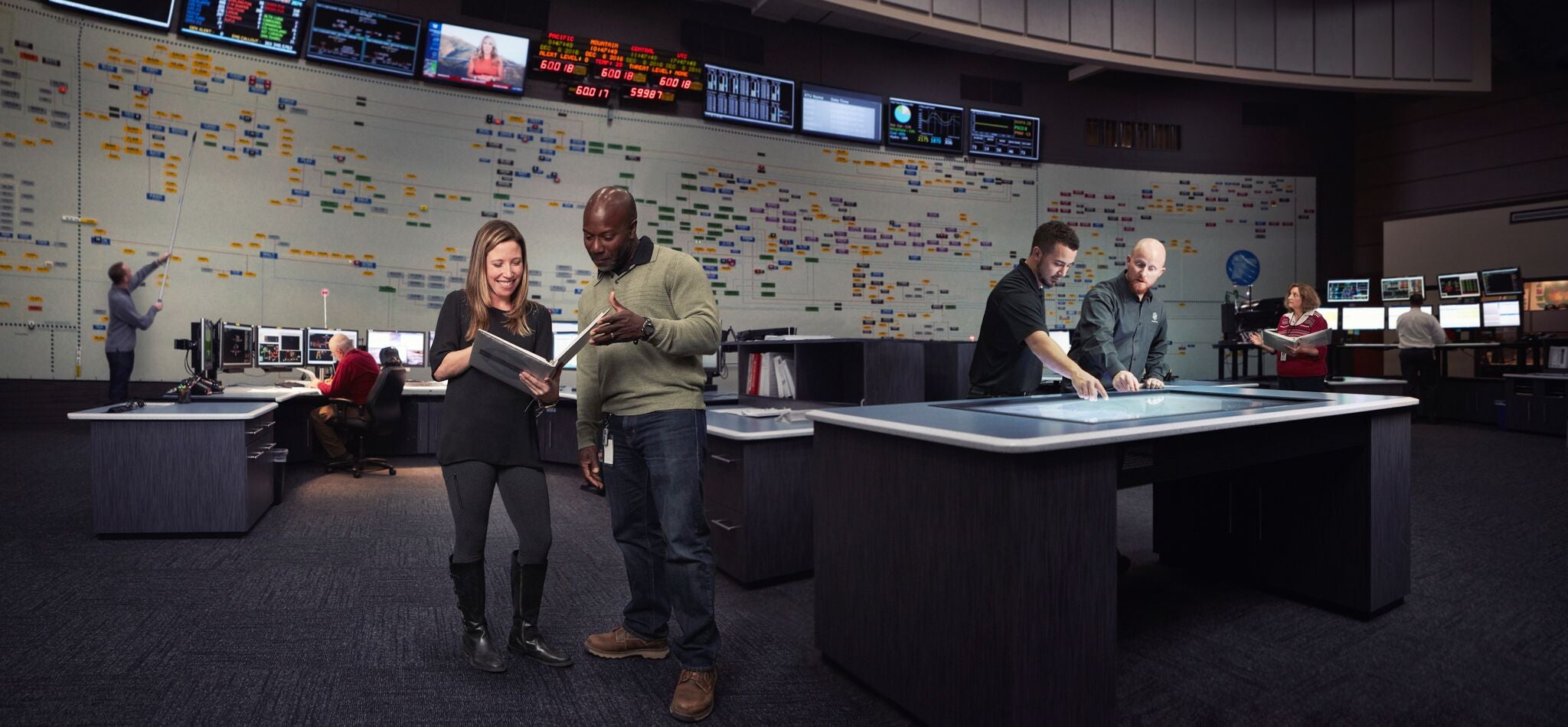Transmission planning
Each year, Tri-State develops a 10-year transmission plan that assesses future transmission needs for Tri-State’s member electric cooperatives. The transmission component of this plan is developed in conjunction with West Connect and the Colorado Coordinated Planning Group (CCPG), formal regional transmission planning organizations recognized by the Western Electricity Coordinating Council (WECC).
As part of the Colorado Public Utilities Commission (COPUC), Rule 3627, Tri-State files its 10-year transmission plan with the COPUC on a biennial basis each February 1.
For more information, to send us your questions or comments regarding our transmission plans, or to be added to the stakeholder outreach list for future transmission planning meetings, please email TransmissionPlanning@tristategt.org.
Network model data
To request Network Model Data, complete this form. If you have any questions, please contact Interconnections@tristategt.org.
Transmission projects
Tri-State continues to invest in transmission infrastructure to ensure dependable power delivery to its 41 member cooperatives throughout its four-state service territory. The West’s vast power supply network is currently strained – improvements and expansion to the system are essential to enhancing regional power reliability.
Additional transmission facilities open the door to diverse energy resources that include renewable energy. The investments in additional lines support renewable energy projects by alleviating transmission constraints to make projects economically viable. Expanding Tri-State's transmission network facilitates the G&T's ongoing pursuit of additional renewable resources.
Transmission OATT rate – supporting documentation
If you are an Interested Party* who would like to request access to supporting documentation, please complete this form. Once you have a login, access supporting documentation here.
To access Tri-State’s OATT filings and protocols, please click here. If you have any questions, please contact Tri-State Transmission Rates.
*An “Interested Party,” as defined in Tri-State’s OATT rate protocols includes, but is not limited to, customers under the Tri-State Tariff, state utility regulatory commissions, and state attorneys general.
CCR rule compliance data
On April 17, 2015, the EPA published the Hazardous and Solid Waste Management System; Disposal of Coal Combustion Residuals from Electric Utilities: Final Rule in the Federal Register. The CCR Rule regulates the disposal of CCR in surface impoundments and landfills as a solid waste under the Resource Conservation and Recovery Act (RCRA). As required by 40 CFR 257.107, Tri-State maintains data and information to demonstrate compliance with the CCR Rule on its publicly accessible internet site. Those reports are available at each site through the Coal Combustion Residuals link provided below.
Coal Combustion Residuals Reports and Certifications
PCB Risk-Based Disposal Approval
On June 10, 2014, the United States Environmental Protection Agency issued a final risk-based approval to members of the Utility Solid Waste Activities Group, including Tri-State, to dispose of non-liquid PCB remediation waste generated at secure utility assets with as-found PCB concentrations <50 parts per million in non-TSCA approved landfill facilities, including municipal solid waste landfills.

